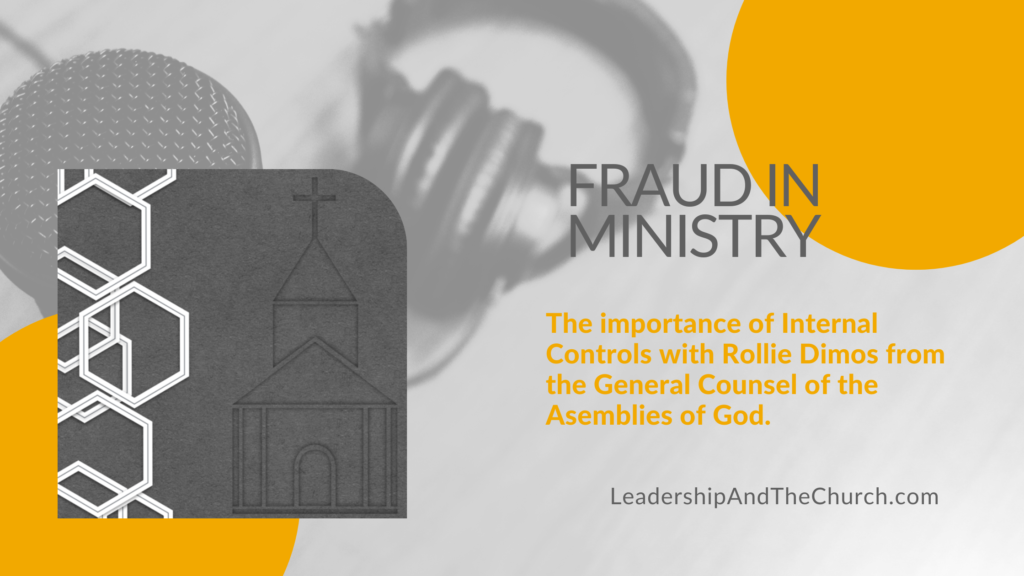Chris Miller, President of Miller Management, is the host of this week’s episode. He is joined by his colleague, Rollie Dimos, Internal Auditor at the General Counsel at the Assemblies of God.

This month, we will be discussing why fraud is an issue, share some examples, and detail ways to prevent fraud and what to do if you suspect fraud in your ministry. This series is not just for the financial people in church, Pastors and other leaders in the church need to hear about steps you can take, too.
External Audits
While Audits do have a place and can be helpful, they are not to used as a guidepost for finding fraud. From their own acknowledgement, if they discover fraud during their review they will absolutely pass that along, but they are not going looking for it. That is not in their scope of work.
According to the ACFE Report to the Nations, “external audits will catch about only 4% of fraud, while accidental discovery will catch 5%.” Sometimes ministries use external audits as an excuse not to do the real work. Stay tuned for what that work actually looks like.
Internal Controls
First up for adding internal controls is Seperation of Duties or Segregation of Duties. This means having multiple sets of eyes on the process. What this actually looks like is one person receives the bill, the bookkeeper writes the check, and a third person signs the check (after approving the service was done, the items were received, etc.) And then another person should be reconcilling the bank account to the financial statements.
Second, educate your people. When you are recruiting individuals to help in this service, make sure you are emphasising the importance of the role. It’s not just we need a warm body, it’s we need accountability to steward this money (this worship) correctly. When need good systems to protect the people, the money, and the ministry.
Number One Way to Prevent Fraud
According to the ACFE, 40% of Fraud is detected by a tip. Someone sees something and then says something to someone who can check into the situation. Then that person goes to the individual to check on the situation. Not starting with an accusatory notion, but as to ask questions. Similar to asking about the check that was written. Have this be a part of your culture that questions are just a part of what goes on.
If someone wants to report anonymously, or if they believe they saw suspicious activity from leadership, these are a good time to have a Fraud Tip Hotline or a whistle-blower policy in place.
Need a whistle-blower template for your ministry? Look no further then Good Faith Accounting.
The tone comes from the top, with culture, written handbooks, and questions are normalized. Fraud doesn’t go away because we sweep it under the rug or blatantly ignore it.
Fraud goes away when it is brought to the light and the situation can be fixed. We know internal controls are the fun part of ministry, but if we don’t set up those controls, finding fraud will be much worse.
Coming Up
Join us next week as we conclude our series of Fraud in Minstry, what happens when we suspect fraud. If you suspect there might be fraud in your ministry, don’t wait. Reach out to a fraud examiner at Miller Management at 816-382-3050 or GoodFaithAccounting.com.
Join the conversation, see behind the scenes, and learn more on our Instagram and X pages.
Special thanks to our guest, Rollie Dimos, and our masters of all things Podcasting, Chris and Lauren Miller, for this third episode in our Fraud in Ministry series.
